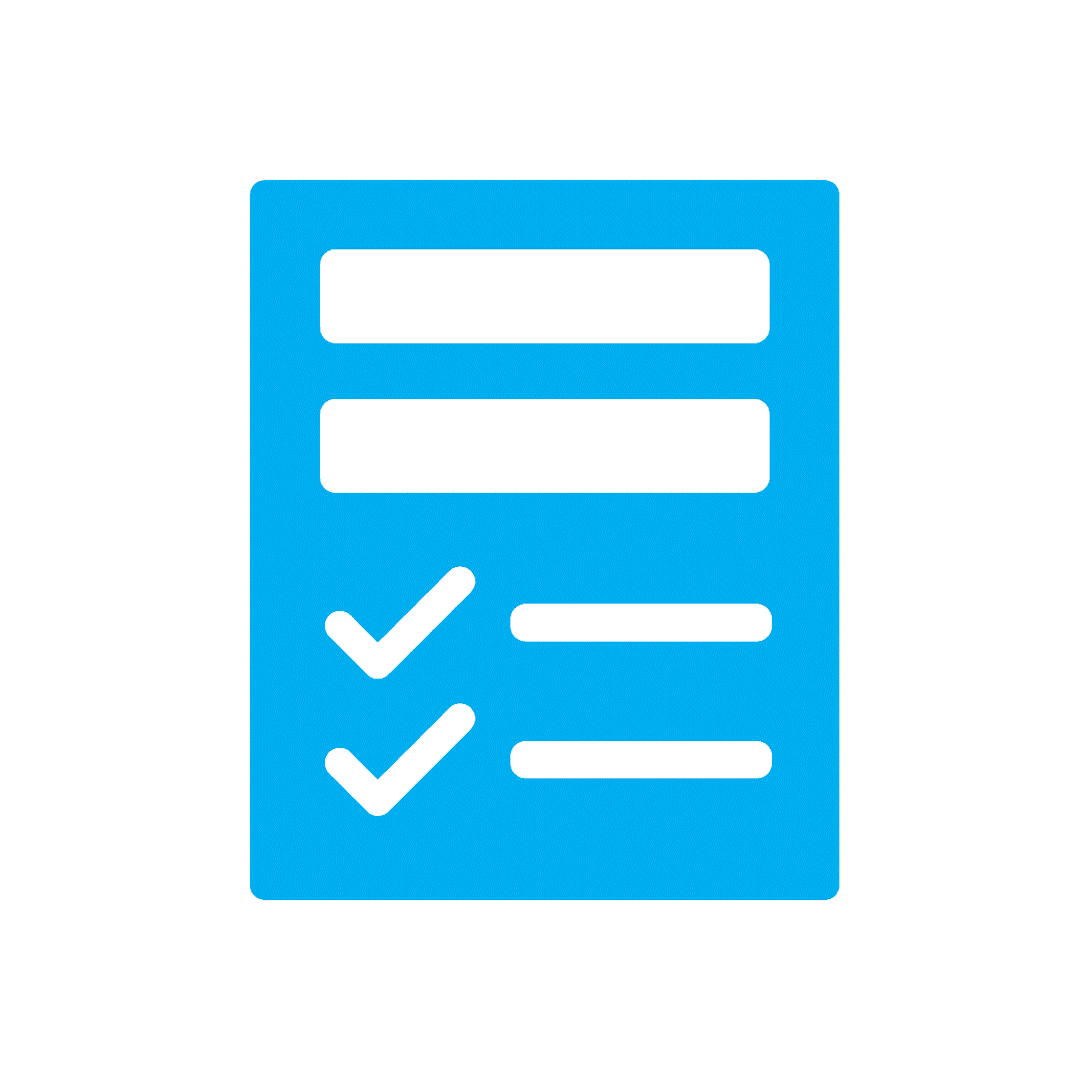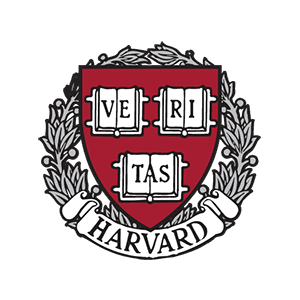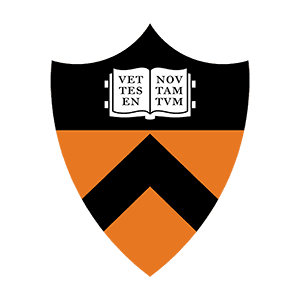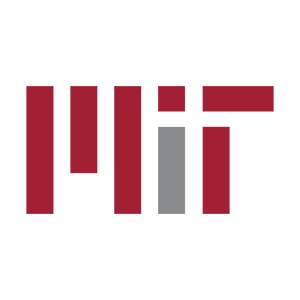Explore By
 Exams
Exams
 Countries
Countries
 Expenses
Expenses
 Universities
Universities
The USA continues to be the leading destination for international students, welcoming approximately 1.1 million students annually. Indian students make up a significant portion of this, representing 21% of the international student body. For those considering studying in the USA in 2025, the country offers unparalleled opportunities and a diverse academic environment. Whether you are looking to study abroad in the USA or explore opportunities as one of the many Indian students in the USA, this year presents exciting possibilities for academic and personal growth.
Studying in the USA for international students provides unparalleled opportunities for higher education. With top-ranked universities like MIT, Stanford, and Harvard, the U.S. offers a flexible education system, diverse courses, and significant advantages such as the STEM OPT program. This makes the USA an ideal destination for those seeking a world-class education and career growth.
Here are the advantages of studying in the USA in 2025:
Top Universities: The USA boasts world-class institutions like MIT, Stanford, Harvard, and UC Berkeley, with 15 U.S. universities ranked among the top 20 globally.
Flexible Education System: U.S. universities offer a flexible credit system, allowing students to explore various fields and choose their major by the end of their second year.
Diverse Courses: With over 2 million programs across 4-year and 2-year institutions, the USA provides extensive educational opportunities, including Bachelor's, Master’s, Doctoral, and Certificate courses.
STEM OPT: International students in STEM fields can benefit from the STEM OPT program, which extends their stay by two years post-graduation for additional work experience.
Research and Innovation: The USA leads in research and innovation, housing 16 of the top 50 universities worldwide.
The admission process varies from college to college, but the following documents are general requirements for admission to higher education in the United States.
What is the process to study in the USA for Indian students?
If you're wondering how to study in the USA from India, you're not alone. Many Indian students are eager to explore educational opportunities in America. The application process for universities in the USA can take approximately 2 to 3 months. Here’s a step-by-step guide to help you navigate the process:
Research and Choose Programs: Identify universities and programs that align with your academic and career goals. Consider factors such as location, course offerings, and campus facilities.
Prepare for Standardised Tests: Depending on the program, you may need to take standardised tests like the GRE, GMAT, SAT, or ACT. Prepare for and schedule these tests in advance.
Check Admission Requirements: Review the admission requirements for each program, including academic qualifications, language proficiency (TOEFL/IELTS), and application deadlines.
Gather Documents: Prepare necessary documents such as transcripts, letters of recommendation, a statement of purpose, and proof of English proficiency.
Apply: Complete and submit application forms for your chosen universities. Pay attention to each program's application deadlines and requirements.
Secure Funding: Explore scholarship opportunities, financial aid, and other funding options to support your studies in the USA.
Obtain a Student Visa: Once accepted, apply for an F-1 student visa. Schedule a visa interview at the nearest US embassy or consulate, and provide the required documentation, including your I-20 form issued by the university.
Make Travel Arrangements: Plan your travel to the USA, including accommodation and orientation at your university.
Best Time to Study in the USA: Intakes, Months & Duration Explained!
Intake | Start Month | Duration | Application Period | Popularity | Details |
Fall | August | 13 weeks | A year before enrollment | Highest |
|
Spring | January | 16 weeks | Similar to the Fall intake | The second most popular |
|
Summer | June | 2 months | 4-6 months before start | Least popular |
|
Proof of English proficiency (TOEFL/IELTS)
GMAT/GRE for postgraduate programs
Letters of recommendation
Statement of purpose
Academic transcripts
Copy of a valid passport
Students wishing to pursue higher education in the USA have an abundance of options, including many of the best universities in the USA for Indian students.
The United States is a popular study-abroad destination, renowned for its prestigious educational institutions.
According to the QS World University Rankings 2025, the top ten US universities include:
Top Colleges in the USA | US News - Global Rankings 2025 |
1 | |
2 | |
3 | |
5 | |
7 | |
56 | |
10 | |
13 | |
10 | |
14 |

Harvard University
Cambridge, Massachusetts
Know More

Princeton University
Princeton, New Jersey
Know More

Massachusetts Institute of Technology
Cambridge, Massachusetts
Know More
For those considering higher education in the USA in 2025, the country offers a diverse range of popular courses, with a notable emphasis on STEM (Science, Technology, Engineering, and Mathematics) fields.
Over 50% of students opt for STEM courses in the USA, reflecting its strong academic reputation.
Other sought-after fields include business and management (15%), social sciences (8%), physical and life sciences (8%), and fine and applied arts (5%).
MS Course | Job Scope |
Computer Science | Software Developer, AI/ML Engineer, Systems Architect |
Data Science / Analytics | Data Scientist, Data Analyst, Business Intelligence Expert |
Electrical Engineering | Embedded Systems Engineer, Power Systems Analyst |
Mechanical Engineering | Design Engineer, Robotics Engineer, Thermal Analyst |
Business Analytics / MIS | Business Analyst, Product Manager, IT Consultant |
Cybersecurity | Security Analyst, Penetration Tester, Risk Consultant |
Biotechnology / Life Sciences | Research Associate, Clinical Data Manager, Lab Scientist |
According to Times Higher Education, the United States is the most expensive study abroad destination for higher education.
The cost of studying in the USA for Indian students includes significant tuition fees and living expenses.
For those planning to study in the USA in 2025, understanding these costs is crucial.
The high tuition fees and overall expenses make it important to budget effectively when considering study abroad USA options.
Annual Tuition Fee as per the Degree
Level of Education | Average Fee |
Bachelor's | From ₹6.5 lakh to ₹33 lakh |
Master's | From ₹8 lakh to ₹50 lakh |
Doctorate | From ₹15 lakh – ₹40 lakh (approx. $15,000 – $50,000) |
Popular Courses Fee
Course Name | Average Fee |
MS | Approx. ₹21 L – ₹52 L |
MBA/PGDM | Approx. ₹33 L – ₹66 L |
B.E. / B.Tech | Approx. ₹21 L – ₹46 L |
B.Sc. | Approx. ₹17 L – ₹41 L |
MIM | Approx. ₹29 L – ₹50 L |
Living Expenses
When planning to study in the USA for Indian students, it's important to consider living expenses. The cost of studying in the USA includes rent, food, and transportation. Understanding these costs is essential for managing your budget and ensuring a smooth experience as you pursue higher education in the USA.
Expense | Average Cost per Year (INR) |
Rent for housing, including utilities | ₹18 L/year |
Dormitory housing | ₹6–10 L/year |
Food | ₹7 L/year |
Books and Supplies | ₹11 L/year |
Transportation | ₹11 L/year |
Miscellaneous | ₹0.83 L/year |
Recent Blogs
For those looking to study in the USA in 2025, scholarships can significantly reduce the cost of studying in the USA for Indian students.
Scholarships can cover tuition, housing, health insurance, travel expenses, and even provide an additional monthly stipend of $2,000.
These scholarships are broadly categorised into merit-based, awarded for academic or non-academic excellence, and need-based, given to students with financial need.
Understanding these options is crucial for managing the cost of studying in the USA and making higher education in the USA more accessible.
Scholarship | Type | Eligibility | Benefits |
AAUW International Fellowship | Merit-Based | Female students, non-U.S. citizens, equivalent U.S. degree, full-time course, intent to return home | USD 20,000 - USD 50,000, covers educational expenses, living costs, child care, travel |
The Robertson Scholarship | Merit-Based | Apply to Duke or UNC-Chapel Hill, a valid passport, and a student visa | Up to USD 1,000 per academic year, community-building programs, leadership development |
Tata Scholarship | Non-Government | Indian citizen, attended secondary school in India, admitted to Cornell, eligible for need-based aid | USD 25 million awarded annually to approximately 20 Indian scholars |
Fulbright-Nehru Fellowships | Merit-Based | Completed equivalent of a U.S. bachelor's degree with at least 55% marks, and completed a master's degree | Fully funded, includes J-1 visa support, tuition, living expenses, round-trip ticket |
Inlaks Shivdasani Foundation Scholarships | Merit-Based | Good undergraduate degree from a recognised Indian university, and an Indian passport holder | Up to USD 100,000 |
Aga Khan Foundation Scholarship | Non-Government | Excellent academic records, bachelor’s degree or equivalent, strong leadership potential | Covers tuition, living expenses, and other study-related costs |
Recent Blogs
Securing accommodation in the USA can be stressful for students planning to study in the USA in 2025. The key is to start searching early to find the right location and price. Living costs, including food and transportation, are generally higher than in other destinations. For those pursuing graduation in the USA or any other higher education program, early planning for accommodation is essential for students looking to study in the USA.
On-campus Accommodation
On-campus accommodation is a popular choice for international students looking to study in the USA.
It offers a cost-effective and convenient option, reducing rent and transportation costs while providing a secure environment and easy access to campus facilities.
Students will benefit from basic amenities like water, food, electricity, and internet.
For Indian students in the USA, the average monthly rent for on-campus housing ranges from 9,800 to 11,100 USD per year (819,300 to 926,850 INR).
This option is especially advantageous for those looking to study USA abroad.
Off-campus Accommodation
Although off-campus accommodation in the US. is generally unavailable for first-year students, sophomores and onwards can start exploring various off-campus accommodations.
Residence Halls: A Building featuring flats where students can stay in single rooms or share with other students.
Canteens
Health Centres
Recreational Activities
1,000 USD - 5,000 USD (82,600 to 4.13 lakhs INR)
Shared Apartments: Type of accommodation not connected to the university. Students need to sign tenancy contracts, which are legal documents that set down the terms of a student’s stay.
Preferred by students who love a private lifestyle.
Give a sense of independence where one has to look over all the aspects of living, such as cleaning, cooking, groceries, and more.
625 USD - 8,000 USD (51,600 - 6.60 lakhs INR)
Homestay: Considered one of the safest types of accommodation, where students will be living with U.S. families right in their homes.
Students will have easy access to all the basic amenities, such as food and furniture.
Students will have peace of mind and protection in a foreign land.
900 USD - 5,000 USD (74,300 - 4.13 lakhs INR)
Luxury Accommodation: The most comfortable choice of living. Apartments are generally fully furnished and come loaded with designer fittings and fixtures.
All the basic amenities are covered.
24/7 secured apartments.
Gymnasiums, cinema rooms, and more luxury amenities.
1,000 USD - 3,000 USD (82,600 - 2.47 lakhs INR)
The U.S. government provides three types of visas for those planning to study in the USA in 2025. For Indian students, the application fee for a U.S. student visa is currently $185, payable online directly to the U.S. Department of State.
Visa Type | Description | Program Type | Employment Options |
F-1 Visa | Commonly used for full-time academic studies | Bachelor's, Master's, PhD, English language programs | On-campus work: Up to 20 hours per week. Optional Practical Training (OPT): Available for up to 1 year after graduation. |
M-1 Visa | Designed for full-time vocational or non-academic programs (e.g., cosmetology, culinary arts) | Certificates, Diplomas | Employment is not permitted |
J-1 Visa | Issued for participation in exchange programs sponsored by the US government or approved organisations | High school, university studies, internships, and research | Employment opportunities depend on the program sponsor and may include on-campus or practical training options. |
Procedure to get a US Visa
As a primary step for studying in the USA, a student must be accepted by an American university certified by the Student and Exchange Visitor Program (SEVP). Once students are accepted, they will receive a Form I-20 from the institution's international student office, which is a paper record of their information in the database called the Student and Exchange Visitor Information System (SEVIS).
Documents Required
Paperwork and documentation are an important part of studying in the USA for higher education. To ensure a hassle-free admission process, students must keep the following documents ready with them at all times.
A valid passport that is valid for at least six months beyond the student's period of stay in the U.S.
Acceptance at a SEVP-approved school and your Form I-20.
Application fee payment for the SEVIS.
Non-immigrant visa application and the Form DS-160 confirmation page.
Students photograph in the requested format and number.
Interview for a US Visa
A successful US visa interview requires preparation, just as with any interview and application process. The interview is designed to showcase why one would be travelling and establish their status as a legitimate student to study in the USA.
The interview questions would be based on five criteria:
Study Plans
Choice of University
Academic Capability
Financial Condition
Post-graduation Plans
Part-time Work Opportunity
For those planning to study in the USA in 2025, part-time work is an excellent way to earn extra money and gain valuable experience.
Students can earn between $12 and $13 per hour while studying abroad in the USA.
With an F-1 visa, students are allowed to work up to 20 hours per week during the academic term and up to 40 hours per week during breaks.
This opportunity not only helps in managing the cost of studying in the USA for Indian students but also provides a chance to experience American culture closely.
Full-time Work Opportunity / Post-Study Work Opportunity
Currently, the U.S. immigration laws allow international students to be employed in the country during and after completion; however, there are restrictions. Practical training offers students who have studied in the U.S. on an F-1 visa the opportunity to work for up to twelve months in a field related to their studies.
Major Requirements for Post-Study Work Visa in the USA
The candidate must hold a lawful F-1 visa to study at a U.S. university.
Employment must be related to the candidate's course of study.
The OPT application must be submitted before completing all coursework.
A job must be secured within 90 days of graduation.
Work hours under OPT are 40 hours per week post-graduation.
OPT must be completed within 14 months of course completion.
If the student leaves the U.S. after graduation but before receiving the EAD and securing a job, re-entry is not permitted.
If the student leaves after receiving the EAD and securing a job, re-entry is allowed with a valid passport, F-1 visa, and EAD card.
Internships
Available for up to 12 months after graduation, OPT allows you to work in your field of study either part-time during your studies or full-time after graduation. For STEM graduates, an additional 24-month extension is possible, making a total of up to 36 months.
Work on an H-1B Visa
The H-1B visa is designed for jobs requiring specialised knowledge and a minimum of a bachelor’s degree or its equivalent.
It allows U.S. employers to hire qualified individuals who are otherwise not authorised to work in the United States.
The visa is valid for a maximum of 6 years, with possible extensions under certain conditions.
H-1B visa holders can also apply for employment-based green cards during their stay in the U.S.
Recent Blogs
Question 1: How to study in the USA for free?
Answer: To study in the USA in 2025 for free, aim to apply to universities with significant financial aid or tuition-free programs.
Seek out merit-based and need-based scholarships, and explore full-ride scholarships, which cover all expenses, including tuition, room, and board, though they are quite rare.
Consider research or teaching assistantships that offer tuition waivers and stipends.
Participate in work-study programs, utilise affordable community colleges, and take advantage of free online courses.
Apply for financial aid through university programs and explore home country funding options.
Question 2: Why study in the USA?
Answer: Study in USA 2025 offers top-notch education with leading institutions like Massachusetts Institute of Technology (#1), Harvard University (#4), and Stanford University (#5), ranked internationally. U.S. universities are renowned for their great employability rates, diverse course options, and opportunities across various states. The culturally rich environment further enriches the study abroad USA experience. Studying in the USA for Indian students offers a world-class education and abundant career opportunities.
Question 3: Can I study in the USA with a B1/B2 visa?
Answer: The B1/B2 visa, commonly known as the "visitor visa," allows individuals to visit the United States for purposes like tourism, business meetings, or medical treatment. However, it does not grant the holder the right to study in the USA. If you wish to study in the USA in 2025, you must apply for a student visa, such as the F-1 or M-1 visa. To switch from a B1/B2 visa to a student visa, you need to file Form I-539 to change your status and await USCIS approval before enrolling in a Student and Exchange Visitor Program (SEVP)-certified program.
Question 4: What is the application process for U.S. universities?
Answer: Following are the steps given for the application process for US universities:
Choose your course/university
Take required exams (like TOEFL/IELTS, GRE/GMAT/SAT)
Submit online application + documents
Pay the application fee
Wait for admission decision + get I-20
Apply for a student visa (F-1)
Question 5: What are the English language requirements?
Answer: Most universities accept:
TOEFL iBT: 80–100
IELTS: 6.5–7.5 bands
Some may also accept Duolingo or PTE Academic.
Question 6: Can I work while studying in the USA?
Answer: Yes, international students can work:
On-campus: Up to 20 hours/week during semesters
Optional Practical Training (OPT): Post-study work up to 3 years for STEM courses
Question 7: What scholarships are available for Indian students?
Answer: Popular scholarships include:
Fulbright-Nehru Masters Fellowships
Inlaks Shivdasani Foundation
Tata Trusts Scholarships
University-specific merit/need-based aid
Amounts can range from partial tuition waivers to full-ride support.
TOEFL
English language proficiency test
PTE
The computer-based English test
SAT
Standardized test administered by College Board
GRE
Admission test for graduates
GMAT
Test for Business and Management Programs
Confused which university to choose?
Use our recommendation engine to analyze your profile and recommend the most desirable programs that fit you.
Get Recommendations